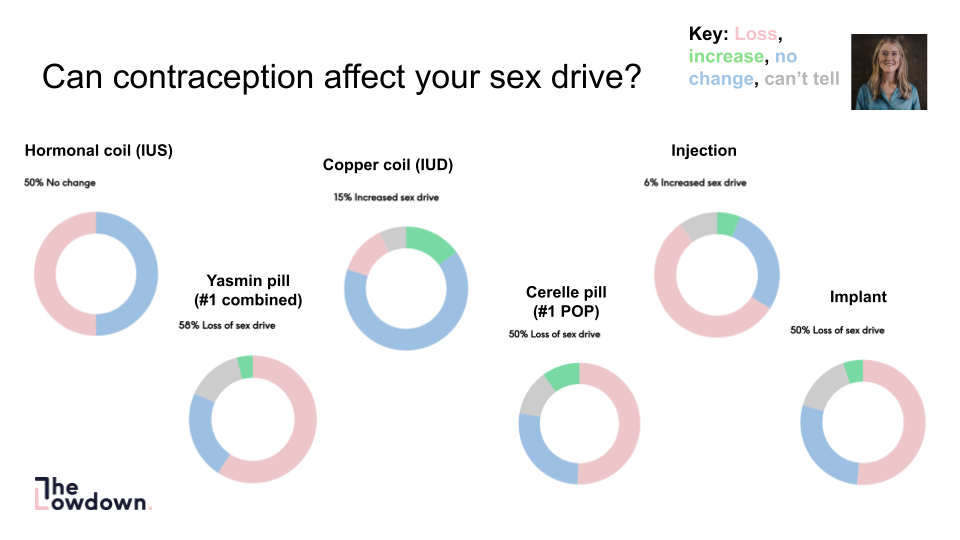Overcoming orgasm anxiety
In this article
What's the lowdown?
Orgasm anxiety is a sense of stress surrounding the ability to reach climax during solo 0r partnered sex
Orgasms look and feel different for everybody, be mindful of this before putting pressure on yourself and your partner(s) to ‘finish’
There is an ‘orgasm gap’ thanks to poor sexual education about pleasure for people with vulvas.
Chat to The Lowdown’s resident sex coach Lucy if you think you have sexual anxiety and want to improve your sex life
What is orgasm anxiety and how can you overcome it?
We’ve all been there… you’re getting in the mood, getting closer and closer. But then, something stops you from fully letting go. Even though reaching the big O isn’t the be-all and end-all of sex, this can cause some frustration. Enter – orgasm anxiety.
Don’t worry, it’s way more common than you think, but life is too short to not fully enjoy sex, so we’re here to help.

Firstly, what is an orgasm?
An orgasm is when sexual pleasure intensifies and reaches a climax. Testosterone and oxytocin are released, which makes people feel happy, sleepy, and relaxed – all of the good feelings.
We all experience orgasms¹ in a variety of ways, feelings and sensations. It’s basically peak arousal and that embodies itself in different ways depending on the person. This can be through muscles contracting, heart beating super fast, and whatever else feels like an orgasm to you. Remember that your orgasm can look and feel entirely different from someone else’s and that is totally normal.
It’s also common to cum (ejaculate) or squirt at the same time as you climax but not always. Our genitals are pretty amazing, if not unpredictable.
What is sexual anxiety?
You may notice sexual anxiety in a few ways;
- Intrusive thoughts and dread when thinking about intimacy
- Fear of letting go sexually
- Not feeling present during sex and disassociating
- Struggling to cum or ‘cum-block’
- Other physical symptoms such as an upset stomach, racing heartbeat (not in the good way), and sweating
What is orgasm anxiety?
Orgasm anxiety is nervousness and stress when reaching climax during sex.
The main cause of orgasm anxiety is the pressure to ‘finish’ as a means of having ‘successful sex’ and it affects all genders. This could be because some have considered sex as a failure if not reaching climax but it’s much more complicated than this. Hyper fixating on orgasms makes it more difficult to have one, ironically. We work hard, but anxiety works harder.
What can cause orgasm anxiety?
Orgasm anxiety² or fear of orgasming can be caused by a multitude of things, such as;
- Pressure from yourself and/or your partner to ‘finish’
- Experiences of sexual trauma in the past
- Feelings of nervousness or worry
- Poor sexual education and bad role models
- Shame or stigma around pleasure
- Generalised anxiety disorder and other mental health conditions
How to overcome sexual anxiety
Accept that orgasms aren’t the only reason we have sex
Sex is a beautiful, fulfilling and joyful thing. Even though orgasms are one way of your body telling you it was good, there’s more to sex than climaxing.
The other reasons to have sex are endless. You can have sex to:
- Explore what you enjoy and learn more about your body
- Get closer to a partner
- Relieve stress
- Get over your ex
- Have a baby (or actively avoid having a baby)
There’s a whole host of reasons to have sex – ultimately, because you want to. At the end of the day, sex should be fun. Sex is not a race to the finish line, it’s more like a journey to overall pleasure and comfort. Once you embrace this, your sex life will improve.
Try something new
One of the reasons you may be struggling to reach peak pleasure could be because you’re not giving yourself the full treatment. Due to lack of proper sex education, we often aren’t told the full story on orgasms. This puts us at a disadvantage, so it’s no wonder we get nervous about them.
Our Sex, Libido and Orgasms webinar taught us that there is something called the ‘orgasm gap’³ among heterosexual cis-gendered couples. 95% men usually or always orgasm, but for women this is only 65% (in long term relationships). For women having casual sex, it goes down even lower to 18%.
So what does that mean? It means that if you’re struggling to orgasm, you’re not the only one! But it also means that penetration without a doubt advantages the male anatomy. Only 20% of people with vulvas can orgasm from penetrative sex alone, so it’s time to mix it up. Time to educate yourself and your partner on this and see where it goes.
Don’t be afraid to try out some new positions and see what you like. It could be that something you’ve never tried before is about to be your go-to orgasm position. Other stimulation areas include the nipples, anus, and the vagina/vulva.
Stop faking it and try having sex with yourself first
We can’t stress this enough – STOP faking your orgasms. It’s not fair on you or your partner. Plus, if you’re having sex with cis hetero-men, they could really do with being humbled once in a while.
Women are statistically much more likely to orgasm from manual clitoral stimulation and receiving oral sex, than by having penetrative sex. We have over 8,000 nerve endings on our clitoris so why were were not told about this during sex ed?
Check out Le clitoris, a 3 minute animated documentary on Youtube that our brilliant sex coaches shared with us.
Take some time alone to yourself and eliminate the pressure of getting there with a partner. That way there’s no one else to impress but yourself. If you are able to achieve an orgasm alone, you’ll be one step closer to climaxing with someone else too.
Learn how to switch off
As well as feeling relaxed AFTER climaxing, orgasms typically occur when we are more relaxed during the act itself, too.
One way to overcome anxiety generally is by learning to switch off. Set up the right conditions for relaxation and transition out of the stress of the day before engaging in sexual play.
Meditation is a great way to practice easing your mind⁴. If you’re able to mimic that meditative state of calm when getting under the covers, you’ll be more likely to block out intrusive thoughts and truly let go.
Consider how your contraception affects your sex drive
Your contraception could actually be somewhat to blame for lack of sex drive. Though there is no concrete evidence to say certain contraceptives affect your libido, some hormonal contraceptives have been known to cause vaginal dryness and mood swings, amongst other things. While those side effects may not be a direct link to your sex life, it could have an indirect influence on your ability to enjoy sex and get to that big O.
This slide from our sex, libido and orgasms webinar illustrates the top rated methods of contraception on The Lowdown, and how reviewers said it affected their sex drive:

If you think your contraception choice has had some kind of affect on your sex life, book an appointment with one of our lovely doctors to discuss the other side effects you may be experiencing.
Speak to a sex coach for more advice
If you still feel anxious around sex and orgasming, book an appointment with our resident sex coach Lucy in a non-judgemental, relaxed space. We offer empowering support and advice to help you get the most out of your sex life.
Our sex coach service focuses on sex drive, pleasure, communication and confidence. With Lucy’s guidance, you will be able to get to the bottom of where your orgasm anxiety comes from, and help you take steps in the right direction to enjoy sex.
Our medical review process
This article has been medically reviewed for factual and up to date information by a Lowdown doctor.



